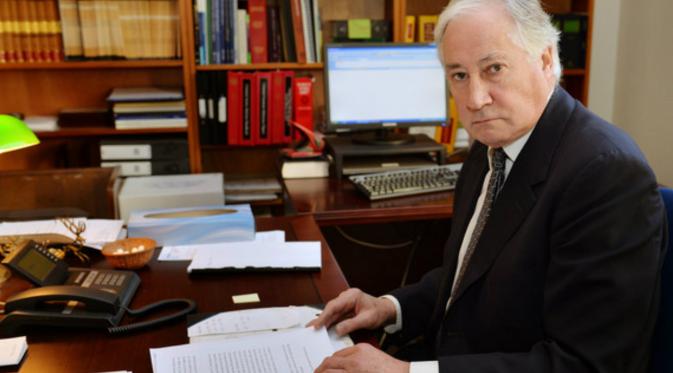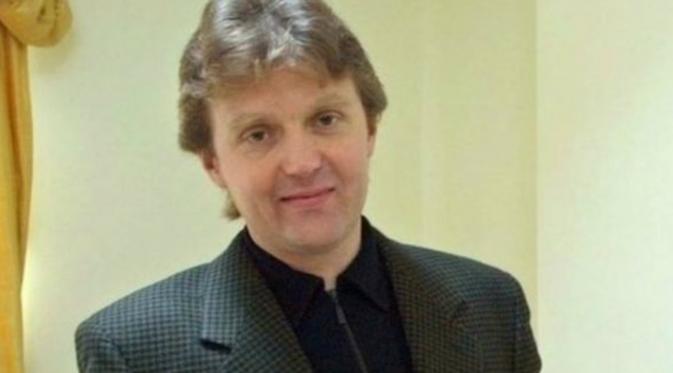Liputan6.com, Jakarta The 10 year long investigation over the culprit and impetus that led former Russian Committee for State Security (KGB) secret agent Alexander Litvinenko to his death begins to unravel some previously neglected truths. Litvinenko, who turned against the Kremlin and flees Moscow, was reportedly poisoned with a rare radioactive isotope and finally experienced a slow painful death.
The case of the man who continued his attacks from exile in London before finally biting the dust is now resurfacing with the Chairman of British Public Inquiry Sir Robert Owen confidently claiming that “senior Russian officials probably having motives to approve the murder… President Vladimir Putin probably approved the operation to assassinate Litvinenko”, as cited in RussiaToday.

Advertisement
According to Sir Robert as stated in the report, the murder of Alexander Litvinenko using high radioactive polonium-210 was conducted by the Russian Federal Security Service (FSB) with its main chief Nikolay Patrucshev sharing responsibility.
"Taking full account of all the evidence and analysis available to me, I find that the FSB operation to kill Litvinenko was probably approved by Mr Patrushev and also by President Putin," Sir Robert said, citing from BBC.
The 44-year-old nuclear terrorism victim’s death in the eyes of Sir Robert, may have been caused by his exile and cooperation with the British agency on the sideline of criticizing Kremlin and accusing it of various crimes.

According to TheGuardian, the Russian Foreign Ministry went to dismiss the report as it accused London of politicizing “purely criminal” case of Litvinenko’s death.
The inquiry was “neither transparent nor public” and resembles a “shadow play” because it was "conducted mostly behind doors, with classified documents and unnamed witnesses contributing to the result,” Foreign Ministry spokesperson Marina Zakharova stated.
CNN also underlines Sir Robert’s assurance regarding the involvement of two men- one former KGB and FSB employee Andrei Lugovoi and one former Russian Army Officer Dmitri Kovtun in the conduction of Litvinenko’s nuclear-poisoning.
Such notion however, is immediately rejected by Russian Foreign Ministry spokesperson Marina Zakharova as well as the two men who have been accused to be the ones assigned for the execution of killing mission.
According to them, it is very likely that the British decides to drop more pressures on Russia in connection with existing differences over a number of international issues. Case of Litvinenko’s death is viewed as a ‘blatant provocation’ of the British authorities to signal its disagreements, possibly on many other unrelated issues at the global level.
:strip_icc():format(webp)/kly-media-production/avatars/76348/original/065139500_1470218750-Adanti.JPG)
:strip_icc():format(webp)/kly-media-production/medias/1118628/original/019567600_1453400088-KGB_HAT.jpg)
:strip_icc():format(webp)/kly-media-production/avatars/350439/original/043935200_1470042106-IMG-20160628-WA0001.jpg)
:strip_icc():format(webp)/kly-media-production/medias/4639264/original/098831900_1699353593-pengamanan_ketat_gedung_MK_jelang_putusan_kode_etik_9_hakim_MK-ANGGA_6.jpg)
:strip_icc():format(webp)/kly-media-production/medias/4931298/original/071375800_1724913056-IMG-20240829-WA0160.jpg)
:strip_icc():format(webp)/kly-media-production/medias/2992830/original/020508800_1576041384-IMG_2172.jpg)
:strip_icc():format(webp)/kly-media-production/medias/5009753/original/039549200_1731861858-20241117-Momen_Akhir-HER_1.jpg)
:strip_icc():format(webp)/kly-media-production/medias/5043892/original/001374000_1733821845-image0.jpeg)
:strip_icc():format(webp)/kly-media-production/medias/4746343/original/065503000_1708312501-tps_rawan.jpg)
:strip_icc():format(webp)/kly-media-production/medias/2904298/original/021751600_1567793057-000_1K1556.jpg)
:strip_icc():format(webp)/kly-media-production/medias/4988556/original/089250700_1730543127-20241102_155304.jpg)
:strip_icc():format(webp)/kly-media-production/medias/5043851/original/012072100_1733820544-timnas_indo.jpg)
:strip_icc():format(webp)/kly-media-production/medias/4776461/original/034555400_1710766809-20240318AA_Launching_Jersey_Timnas_Indonesia-34.jpg)
:strip_icc():format(webp)/kly-media-production/medias/3580561/original/030903500_1632367748-visual-karsa-XDOPUs28dY8-unsplash.jpg)
:strip_icc():format(webp)/kly-media-production/medias/2760909/original/033902900_1553527366-WhatsApp_Image_2019-03-25_at_22.12.40.jpeg)
:strip_icc():format(webp)/kly-media-production/medias/4838621/original/019271700_1716280593-Piala_AFF_2024_-_Hasil_Undian_AFF_ASEAN_Championship_2024_copy.jpg)
:strip_icc():format(webp)/kly-media-production/medias/4027974/original/066610300_1653010387-6_000_1GE14J.jpg)
:strip_icc():format(webp)/kly-media-production/medias/5046370/original/011579500_1733911553-JYT_5283-2__1_.jpg)
:strip_icc():format(webp)/kly-media-production/medias/5045991/original/054063200_1733900339-ATK_PN_NL_BRI_Liga_1_2024_Exclusive__4_.jpg)
:strip_icc():format(webp)/kly-media-production/medias/5045738/original/094522300_1733899622-ATK_PN_NL_BRI_Liga_1_2024_BIG_MATCH.jpg)
:strip_icc():format(webp)/kly-media-production/medias/5045467/original/098211100_1733898843-ATK_PN_NL_BRI_Liga_1_2024_Exclusive__3_.jpg)
:strip_icc():format(webp)/kly-media-production/medias/4547511/original/080693900_1692699810-20230809BL_Stok_Foto_Persija_Vs_Borneo_FC_BRI_Liga_1_2023-2024_106.jpg)